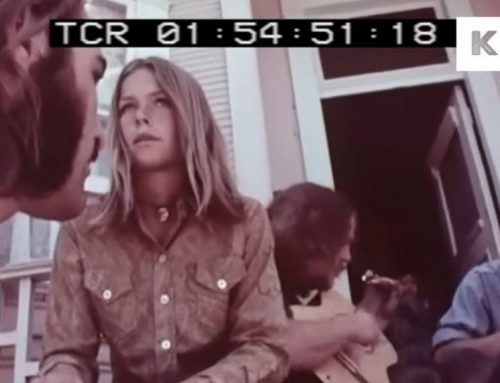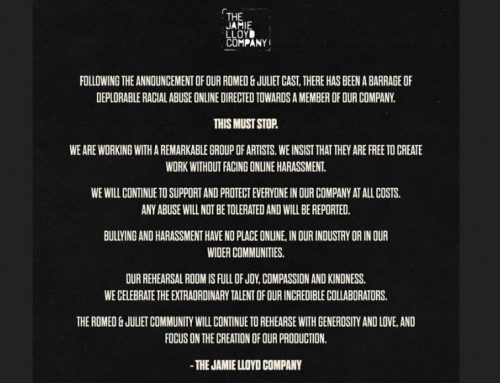In this space I have written about several of the exploits of Eddie Mannix, but most of those involved paying off a couple of people or finding a willing reporter.
There was one time though where Eddie paid off nearly two dozen people all to keep his studio bosses happy.
There has been a lot written about a party held one night that resulted in the rape of a chorus actress and how Eddie bought off jurors and even the rape victim’s lawyer.
It is quite the story and absolutely ruined the life of the actress.
Instead of the $400K she was offered and a seven year contract, she got nothing, and nothing happened to her rapist. What no one asks is why did the studio go to such great lengths to protect a salesman/rapist.
They didn’t put on the full court press because of the salesman, they did it because they didn’t want anyone focused on what else happened that night.
There was a 15 year old who was there.
She was going to be the studio’s biggest star.
She had been putting off the studio head and the executive second in charge.
There had been some groping by both men, but she refused to sleep with them.
That night though, they didn’t give her a choice.
The studio boss and the executive took turns assaulting her.
They tried to get her drunk, but she refused.
Several people were standing outside the room where it was taking place and watched it happen.
There are stories that because of it, it inspired the salesman to do the same thing.
Others said, the salesman was ordered to rape someone at the party so all the guests would talk about that one and not the one by the two studio bosses.
In her very unfinished biography, the actress talks about both men but only refers to the groping.
She had barely written anything before giving up on the project.
In the publisher’s archives there are letters which refer to it though, as well as her unfinished manuscript.
Eddie managed to keep everything quiet by focusing the world’s attention on the chorus actress.
Chorus actress : Patricia Douglas
Salesman: David Ross (Metro-Goldwyn-Mayer)
15 year old star: Judy Garland (The Wizard of Oz)
Studio: MGM
Head of studio: Louis B. Mayer
‘Girl 27’ recalls how MGM called shots in 1937
In 1937, for example, MGM was the biggest employer in Los Angeles County and, according to filmmaker David Stenn’s powerful new documentary “Girl 27,” the studio was able to engineer the biggest cover-up in Hollywood history. It’s a fascinating story about the brutal rape of Patricia Douglas, an underage chorus girl who along with more than a hundred other young dancers was tricked by the studio into attending a stag party the studio held as part of a convention to reward hundreds of its salesmen from across the country for doing such a great job.
Presiding over the festivities that opened the convention were such top MGM executives as legendary studio head Louis B. Mayer and general manager Eddie Mannix. They were honoring their sales team’s success at a time when most of MGM’s rivals in Hollywood were in bankruptcy or receivership. MGM’s sales department had devised a new formula for calculating film rentals that instead of being based on a sliding percentage scale of grosses was on a per-film basis determined by a title’s performance in 30 top markets. This meant that a film’s success in major cities would generate higher theatrical rentals in smaller markets once it went into wider release.
Produced by Stenn and Lindsay Webster, the TLR Productions film opens June 27 via Westlake Entertainment and Red Envelope Entertainment at Laemmle’s Music Hall in Beverly Hills and will be released in DVD Oct.16. It’s based on the article “It Happened One Night … At MGM” that Stenn wrote for the April 2003 issue of Vanity Fair, which focused in detail on what happened to Douglas and how it completely destroyed the 20-year-old girl’s future. Needless to say, the events Stenn focuses on have absolutely nothing to do with the MGM of today. Those responsible for what happened to Douglas in 1937 are long gone from Hollywood and this world.
As a Hollywood history buff I enjoyed “Girl 27” because it exposes a seamy side of the film business that typically isn’t talked about in books dealing with the industry’s Golden Age. The movie hammers home just how much power the most important studio of its day was able to exercise when it came to dealing with L.A.’s criminal justice system. While it’s certainly no secret that in those days the studios were able to hush up drunken driving incidents involving their stars, knew how to clean up after the stars’ nightclub brawls and could keep their marital misadventures out of the newspapers, what “Girl 27” deals with is felony rape and assault that in other circumstances would have put someone in prison. That someone, according to the film, was David Ross, a Chicago salesman for MGM who was a 36-year-old bachelor at the time. Unfortunately for Douglas, of all the chorus girls MGM told to show up in costume for the party — although they thought they were going to be auditioning for a film — she was the one who caught Ross’ eye.
I had the opportunity recently to talk to Stenn about his movie and to find out more about the tragic turn of events in Douglas’ life that terrible night in 1937. “MGM was the largest employer in L.A. County and it was the Depression,” Stenn explained. “There was no job security. Social Security had been instituted literally five months earlier. So the idea that MGM could protect you for life (was very persuasive). In the case of Clement Soth, the parking attendant (who saw Ross flee the rape scene, but later changed his story in front of the grand jury), they guaranteed him a job for life. Here’s a man who was making $5 to be a parking attendant and MGM comes to him and says, ‘We will give you a job for life.’ That’s hard to walk away from.”
Not only could silence be bought, he noted, “Anything could be bought. I’m really curious to know if people can even understand the power that Hollywood wielded over Los Angeles. In the footage of Louis B. Mayer greeting the sales people as they arrived there’s a man standing next to him in a police uniform. That’s L.A. police chief James Davis. So here you have Louis B. Mayer exhorting these guys to ‘have a good time, anything you want’ and he has the presence and, therefore, the endorsement of the Los Angeles Police Department’s chief right behind him.”
How did Stenn first hear about the Douglas case and decide to make a movie about it? “I was on deadline for my second book,” he replied, referring to “Bombshell: The Life and Death of Jean Harlow.” “It was the first week of June 1937 when Jean Harlow was dying. She was MGM’s biggest female star. She’s 26 years old and doesn’t come to work and no one knows what’s wrong with her. One day the report is she’s sick but recovering. The next day the report is she’s (had) a relapse and suddenly she dies. Meanwhile, the Duke of Windsor, who has abdicated his throne as the King of England to marry an American divorcee, is actually getting married that same week. So these are two of the biggest stories certainly of that year and, partially, of that decade. I’m reading this and all of a sudden there’s this third story (about Douglas) that dominates the headlines — and it’s not just local, it’s all over the country. – Read more here
Read more on these Tags: David Ross, Judy Garland, Louis B. Mayer, Old Hollywood, Patricia Douglas









